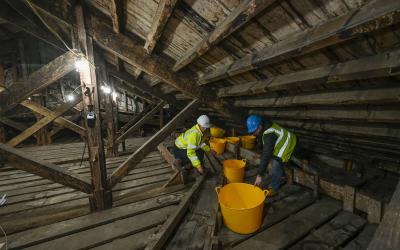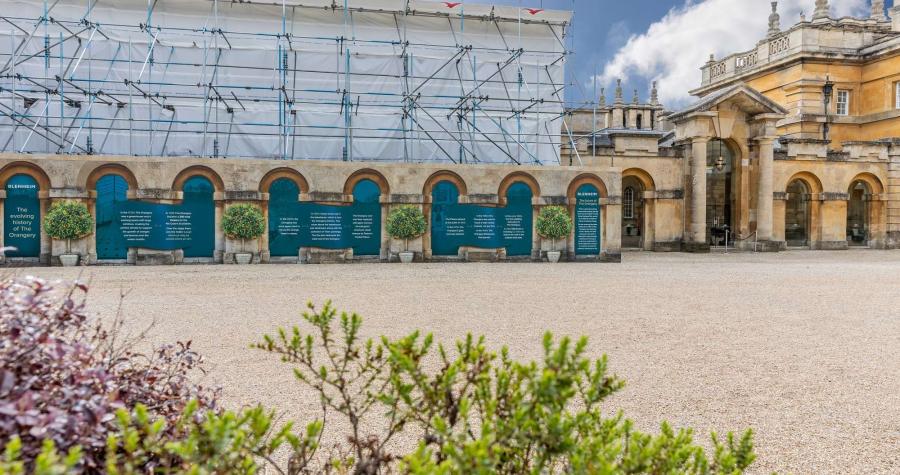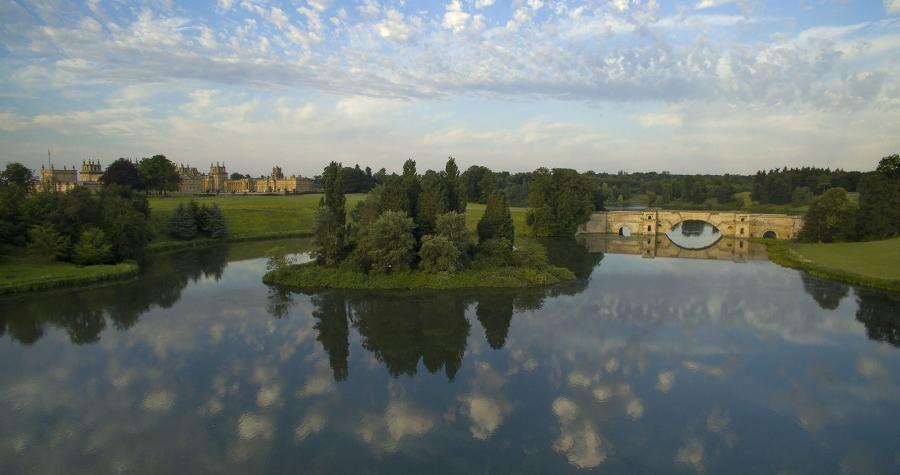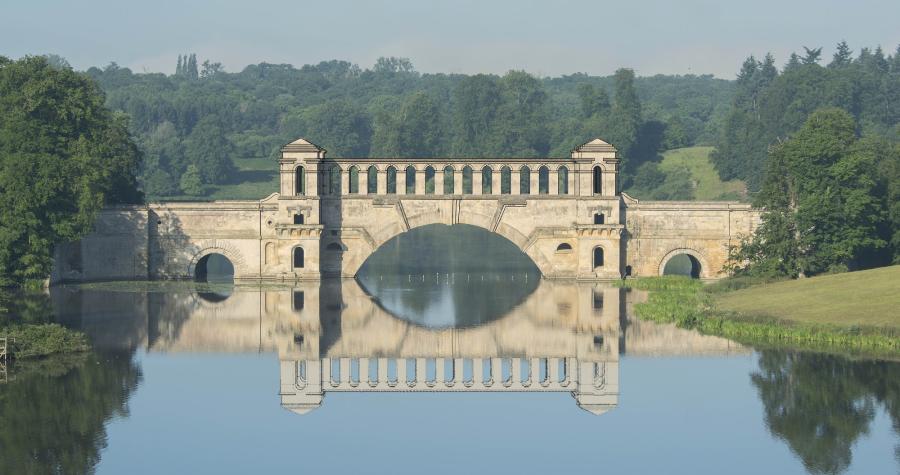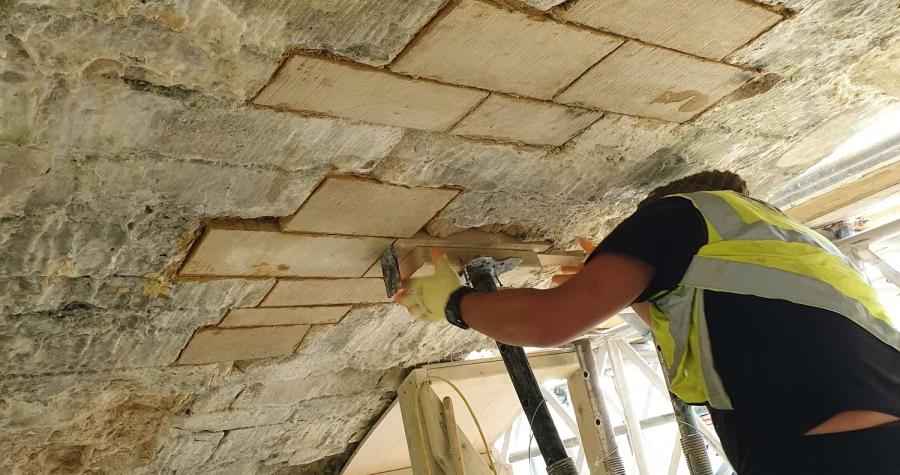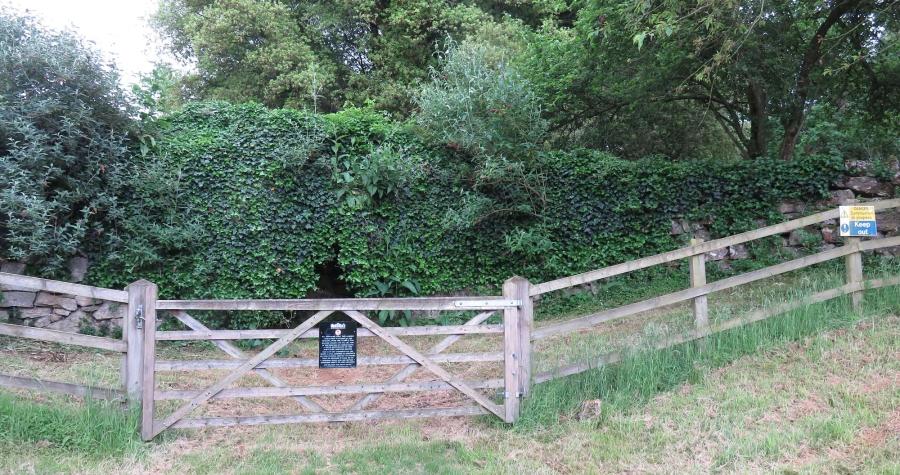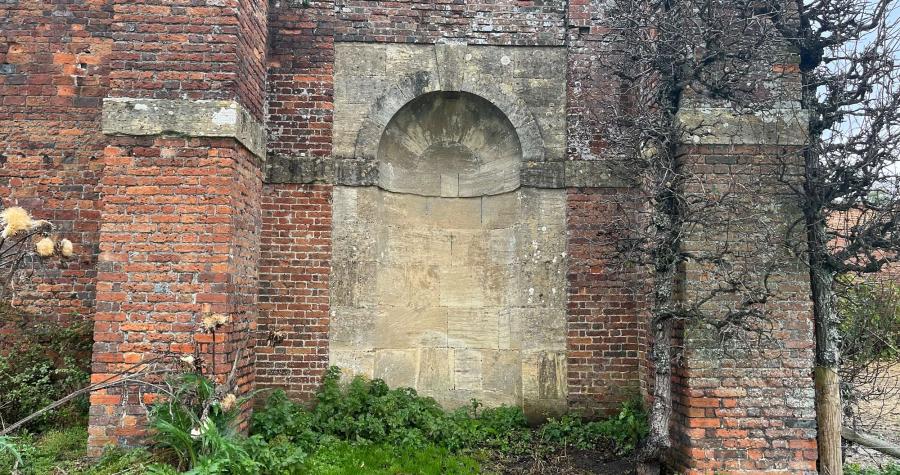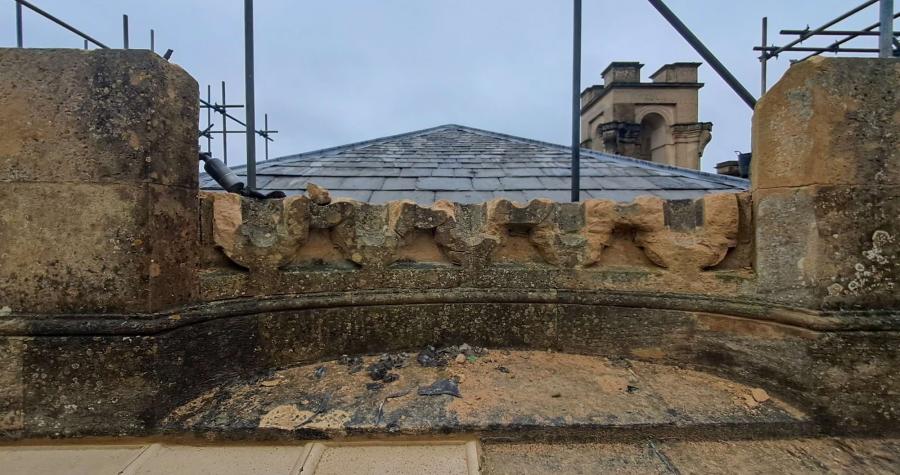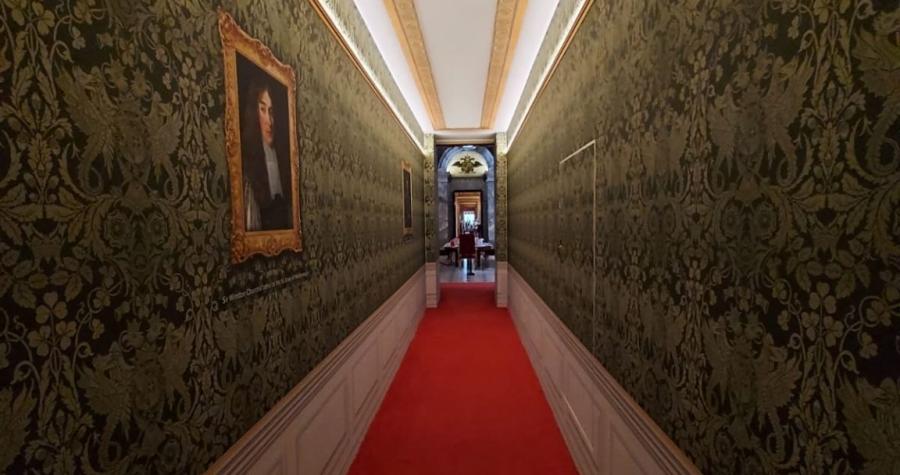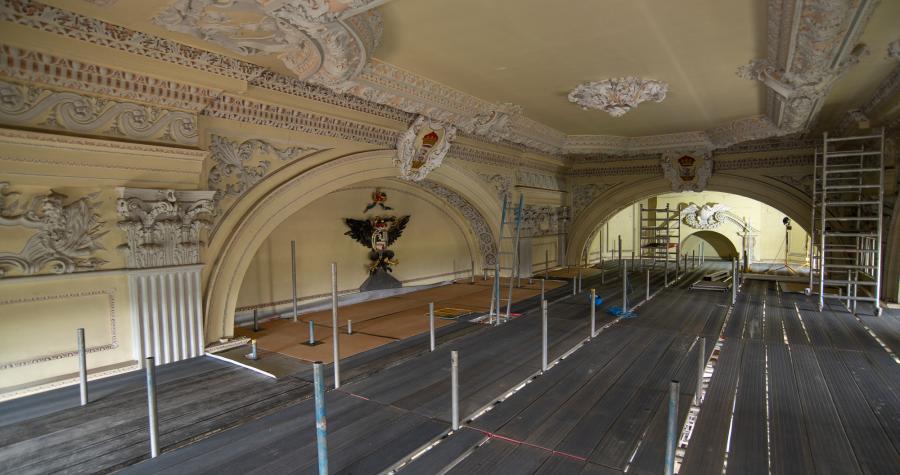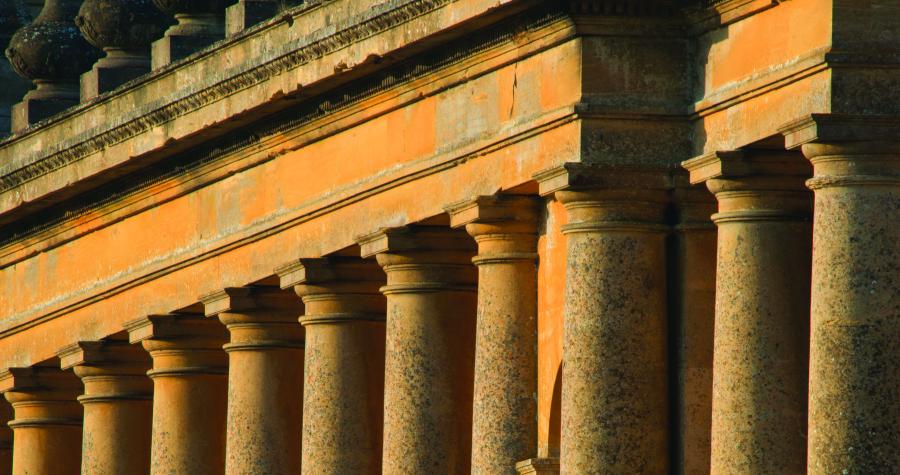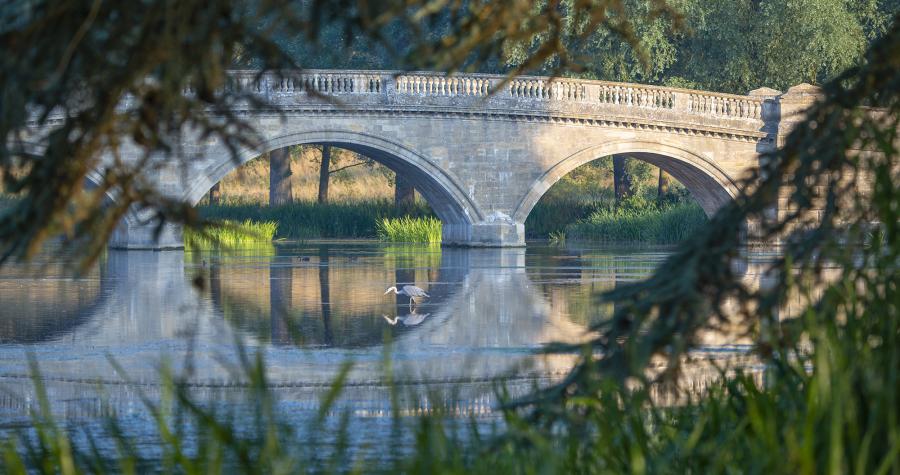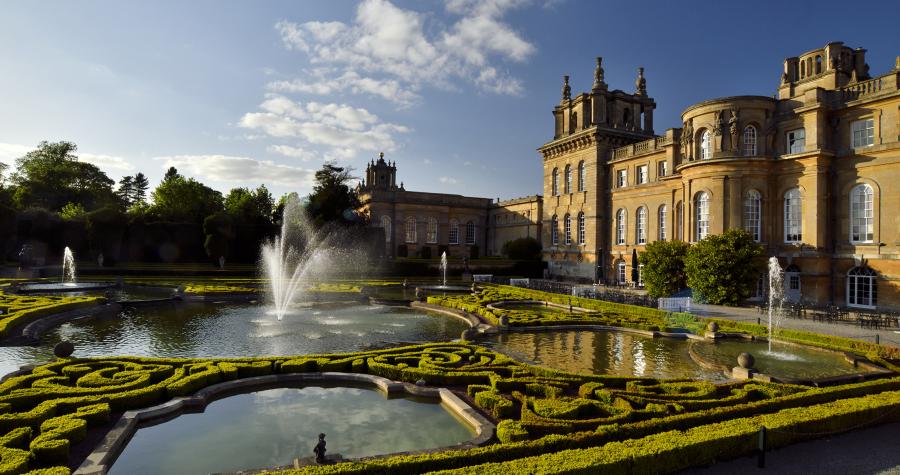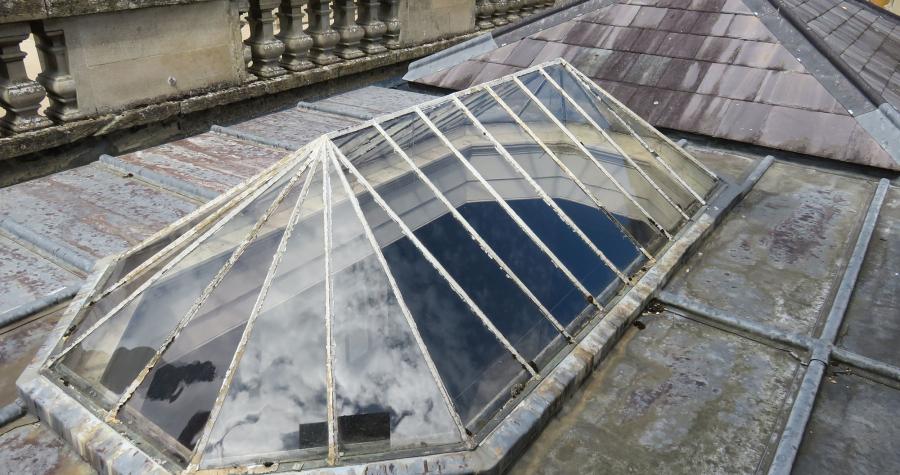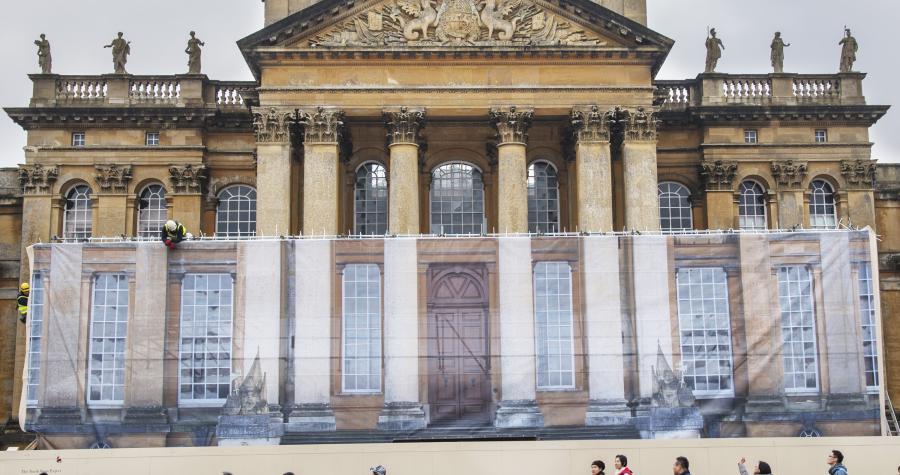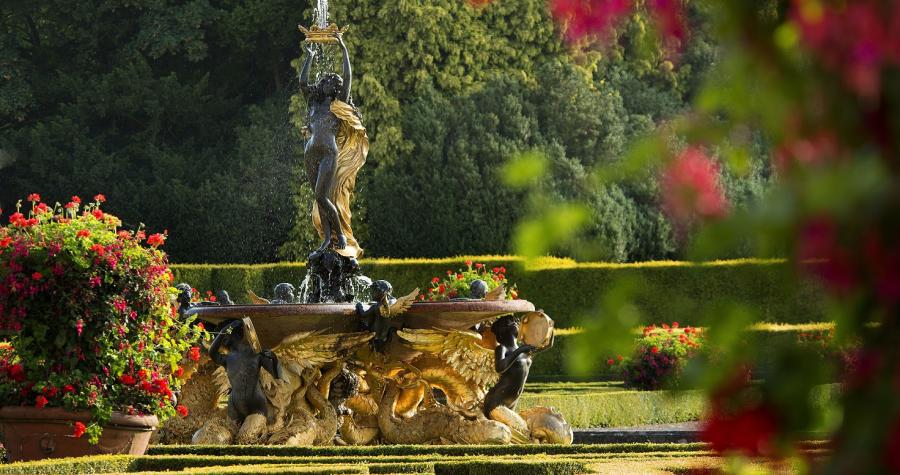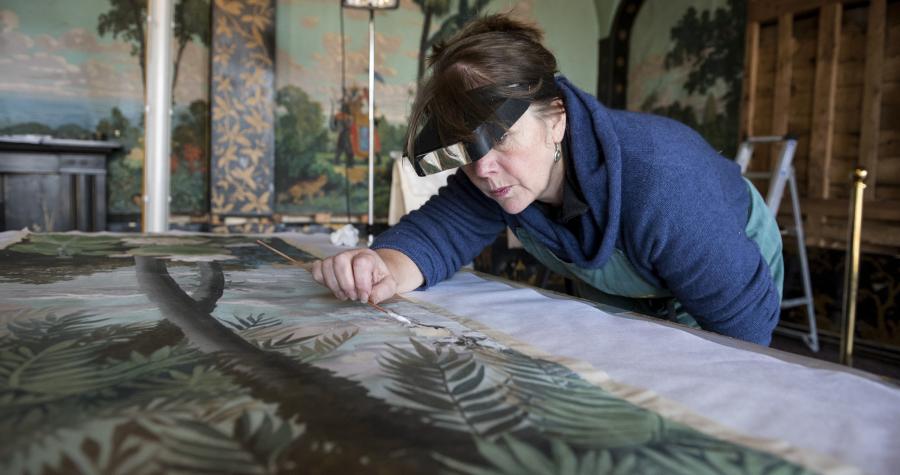
Protecting a Legacy
Blenheim Palace is over 300 years old, so it’s hardly surprising that the fabric of the building and the extensive collection housed inside its walls need constant attention. We are mid-way through a 10-year conservation project costing £40 million that’s designed to conserve the World Heritage site for future generations.
The work is funded through admission charges, which are invested back into vital conservation and restoration projects. Choosing to Gift Aid at checkout allows Blenheim to reclaim 25p for every £1 spent on admission, helping to protect our legacy, and the best bit is that it won’t cost you a penny.

Our biggest project lies ahead…
During 2025/26 we will embark on our biggest journey to restore the Palace roof. The Above and Beyond Roof project will take a monumental effort by many staff, suppliers and partners, huge sums of money to complete and will be a fascinating project to watch and see it come back to its full glory. Watch this space for the journey to begin and how we will raise these vital funds.
Learn More about the Above and Beyond Roof project
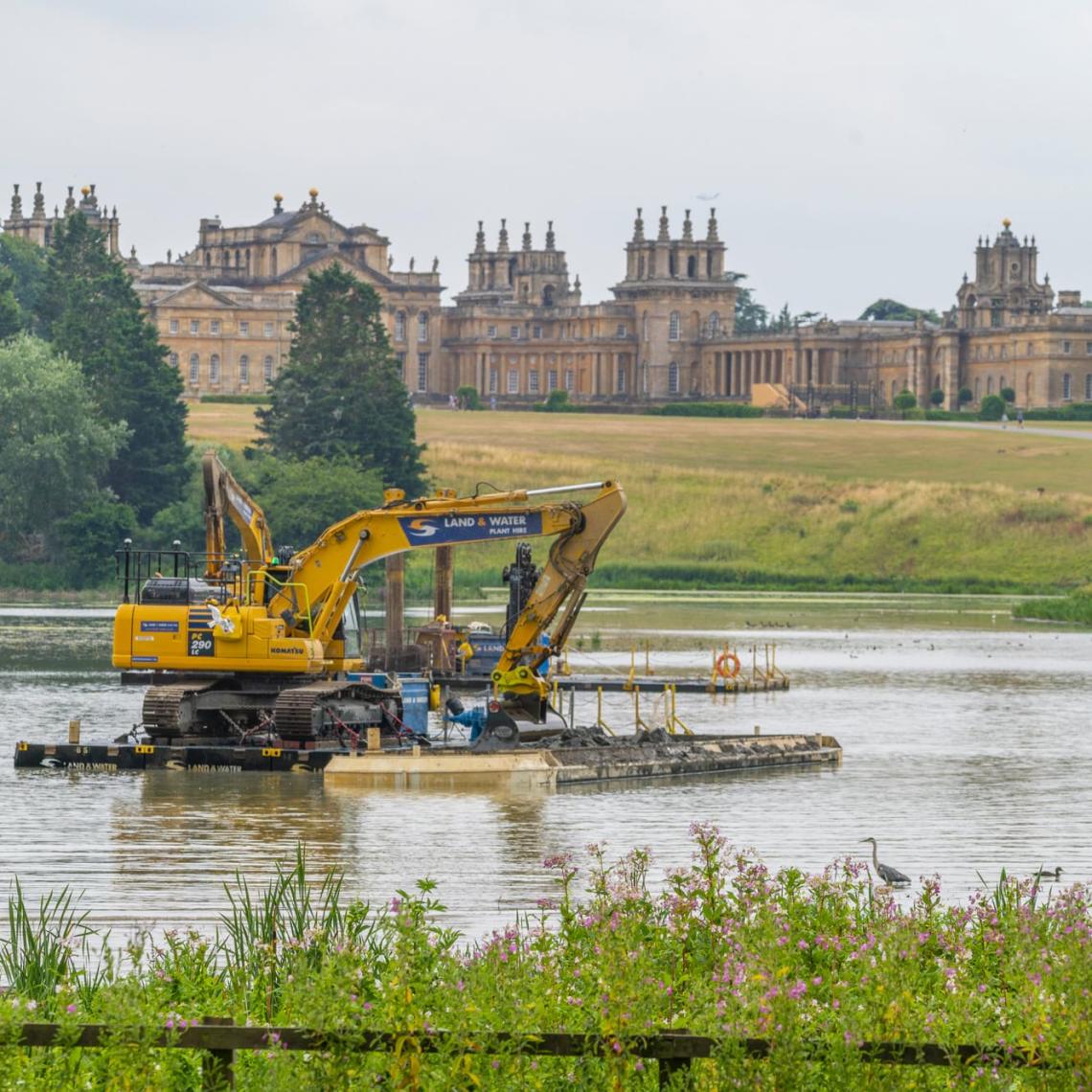
The Lake Dredge
Completed: August 2023
We have now successfully completed the first dredge of the Queen Pool in over 100 years. The dredge has returned the lake to its ideal depth of two metres from its current shallows of 30cm, by removing 300,000 cubic metres of silt which threatened the landscape and ecological values and importance.
The Queen Pool and the rest of the lake system is a Site of Special Scientific Interest and provides a vital habitat for a huge range of wildlife ranging from water voles and otters to bats and wading birds.
As part of the project, the removed silt was transported 5km from water to land to create a new landform over 16ha. This will now take 18 months to dry out after which it will be seeded and returned to grassland.
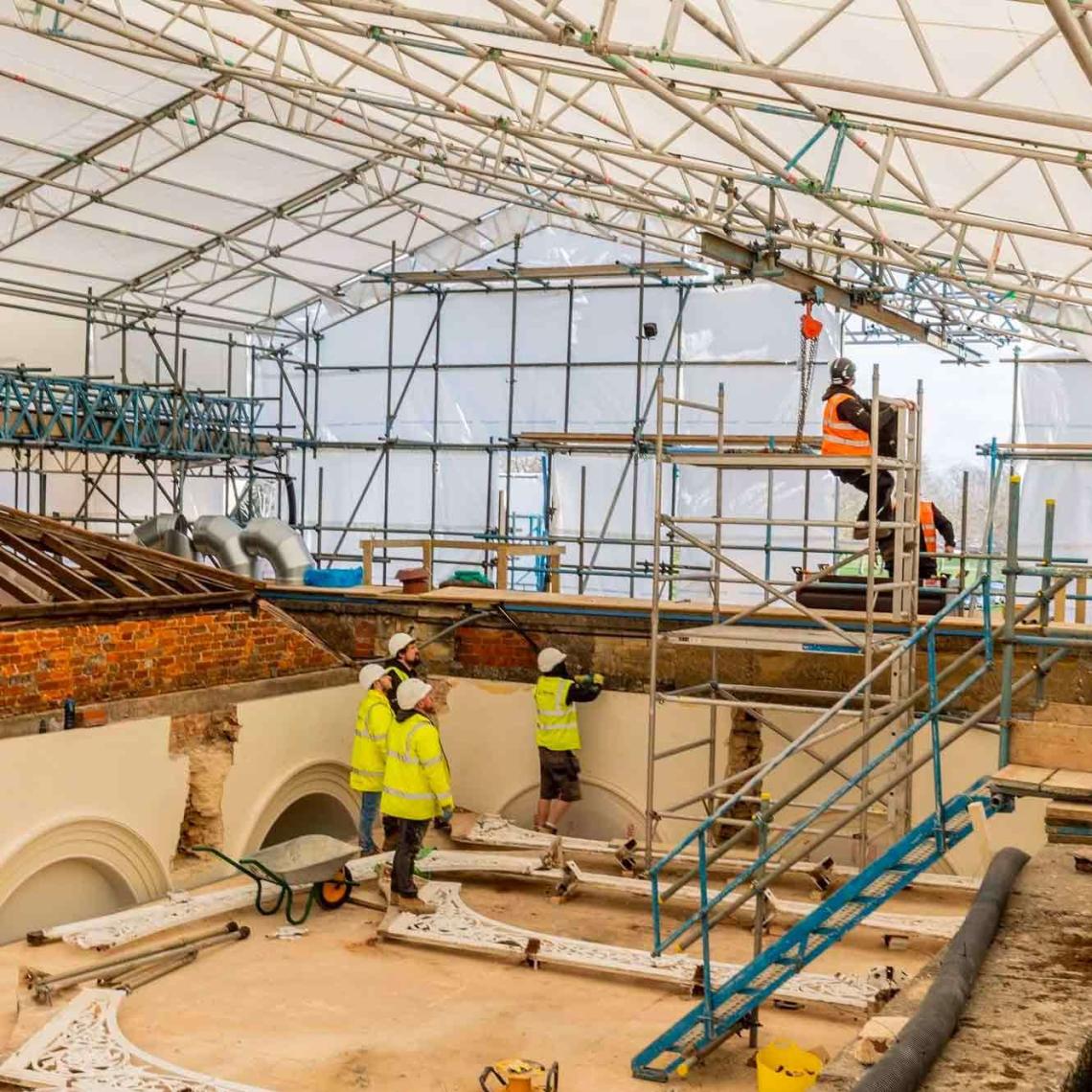
The Orangery Roof
Completed: October 2023
In October 2023, we completed the ground-breaking conservation project of restoring the roof of The Orangery to the original solid slate, just like the corresponding roof over The Oxfordshire Pantry.
This involved removing the 19th century glass ceiling, which had come to the end of its life and replacing it with a timber and slate structure. The new slate roof combined with modern insulation plays a part in reducing overall energy consumption, pushing us closer to our green goals.
The project aimed to restore The Orangery to what we believe would have been its original form, based on research and evidence. It’s also believed to be the first time this type of reinstatement programme has been carried out on a Grade I Listed building.
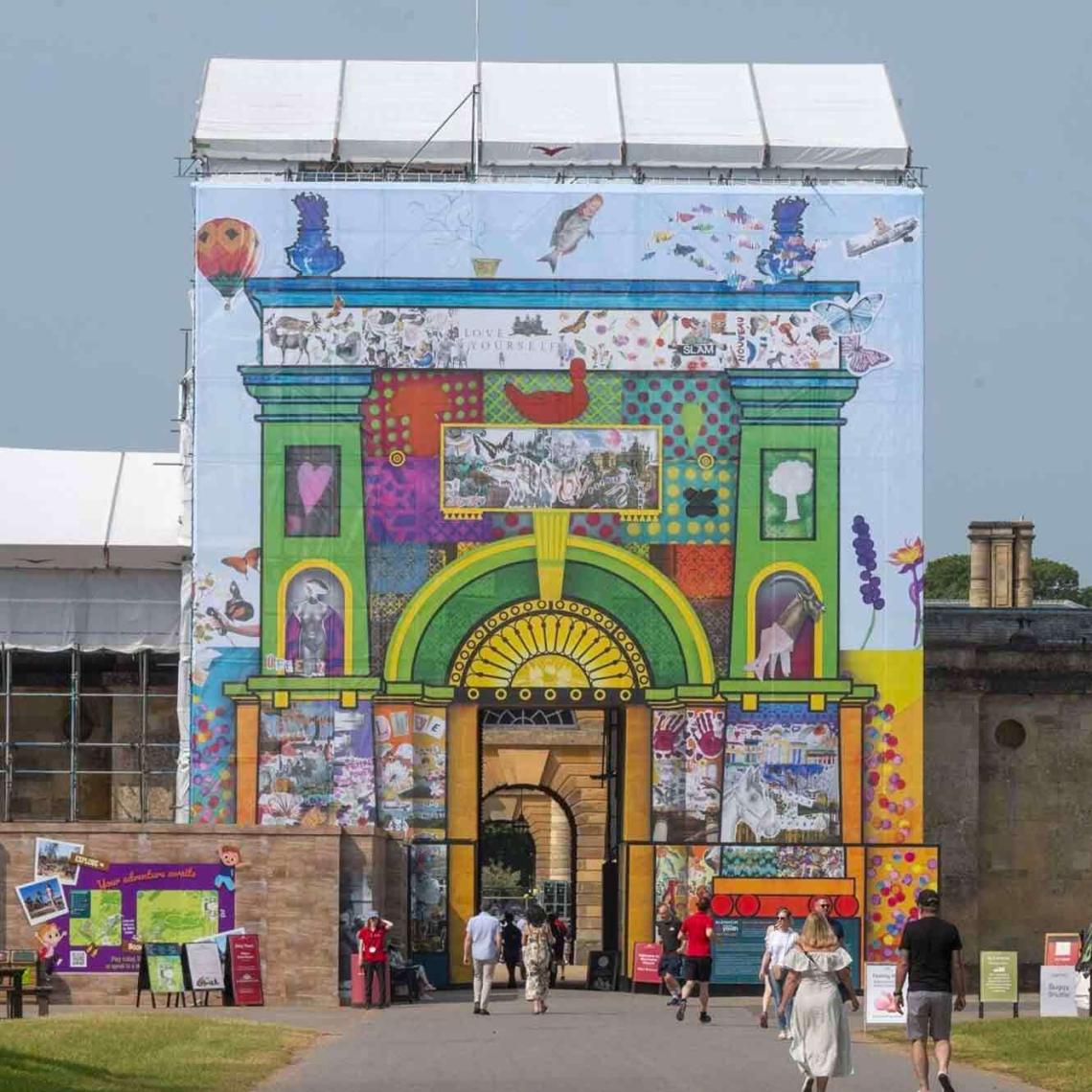
Flagstaff Roof
Completed: November 2023
Flagstaff roof has also gone through extensive conservation works which involved removing the half lead and post WW1 half corrugated metal roof and returning it to back to its original design.
Historically the triple height vaulted space under Flagstaff tower has been the main entrance to the Kitchen Court. Due to the layout and materials of the roof there was significant leaks and water damage to the plaster work and lime wash.
As part of these extensive conservation works the existing timber flagpole was removed by the Oxfordshire Fire and Rescue Service as part of a training exercise. A new composite flagpole now stands proudly in its place.

